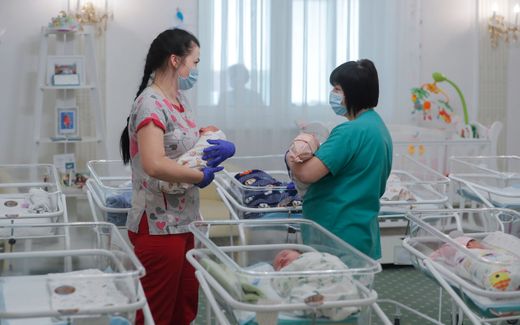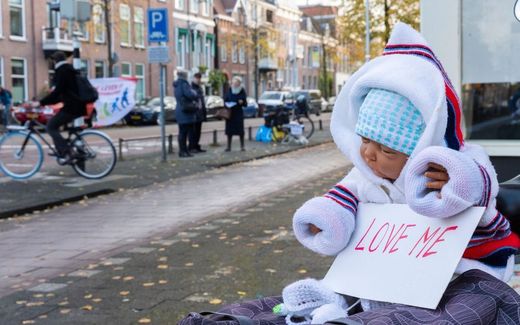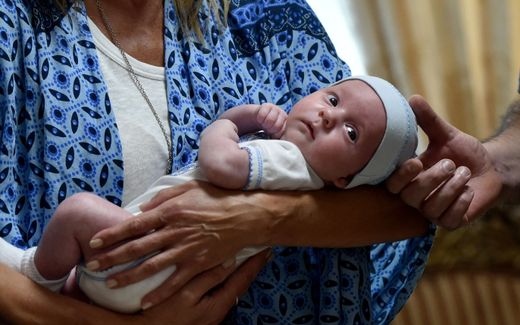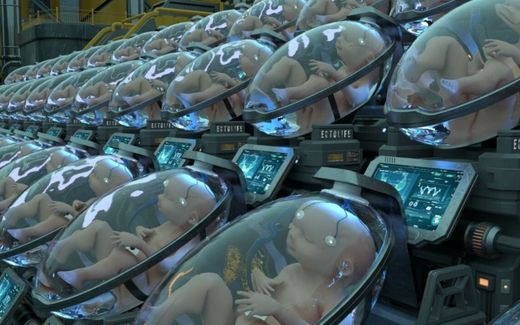Why mothers leave their child behind in a “baby box”
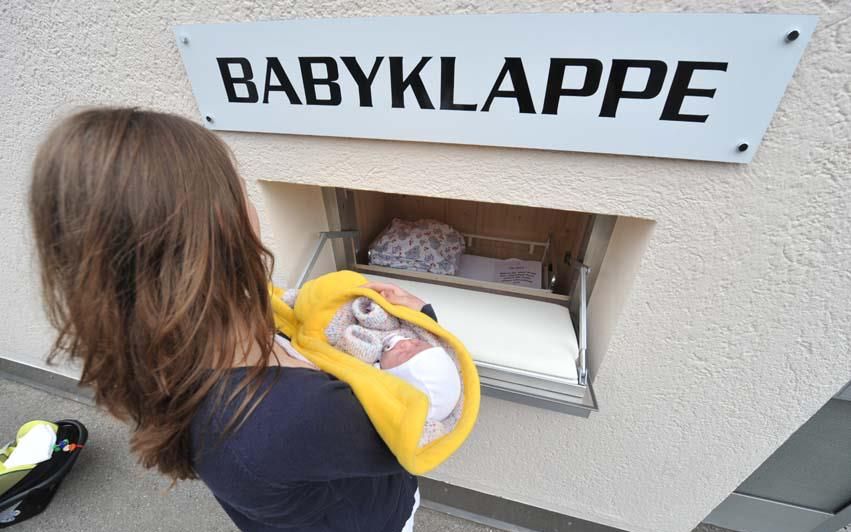
One of the baby hatches in Germany. Photo Facebook, Prokids-Babyklappe
European Union
A child should grow up with his mother. That’s the theory. But in the real world, some new mothers are in panic and try to hide their baby. That is where the baby hatch seems to be an outcome. The number of them is growing in Europe.
The baby hatches provide a space where women can abandon their child anonymously and safely. For example, women who are desperate after rape, or because of honour crimes or homelessness, sometimes do not know what to do with their child. They fear for their safety and, therefore, do not want anyone to know that they gave birth to a baby. The hatch provides them with an opportunity to leave their child safely without giving out their identity.
The idea of a baby hatch already dates from the Middle Ages where some churches had a “foundling wheel” where women could abandon their child in the church.
Baby hatches are widely spread over Europe
In Europe, there are dozens of baby hatches. Some countries, such as the Netherlands and Belgium, only have a few. Others, like Germany and Spain, have many more.
In Spain, some baby hatches are regulated by the government. The national social services provide the facilities to desperate women. In addition, pro-life and pro-family NGOs manage some of the hatches, and some religious organisations do so as well. Spain does not only have hatches for babies but also for older children. At the same time, it remains a crime to abandon one's child, the website of the Madrid authorities reads.
In the Czech Republic, baby boxes are legalised. According to Prague Monitor the hatches are recognised as a means of health care. The first baby hatch in the Czech Republic was opened in 2005. Since then, dozens of babies have been left in them. The number of baby hatches in the country is still increasing.
Other countries do not have legislation at all. Officially, leaving behind the baby is even a criminal act in some. That is the case in Belgium and the Netherlands. Belgium has two baby hatches called "Babyschuiven". In the Netherlands, there are currently 11 baby rooms. The Dutch authorities are not in favour of the rooms and state that it is more important to remove the taboo from an unwanted pregnancy and help these mothers. However, the government does not close the rooms which are located in hospitals and private homes, either. Recently, two new rooms were opened.
In France, there are no baby hatches, as the government has provided women with another possibility to remain anonymous after giving birth. As the child reaches "the age of discernment", he or she may be able to access more information about the biological family if the latter approves.
Germany has both options: mothers can choose to deliver their child "confidentially" or put it in one of the approximately 90 baby hatches in the country. The hatches are not illegal, but it is a grey area when it comes to the legality of abandoning a child in them. Even though women have the option to deliver their child in the hospital confidentially, the government noted in 2017 that some babies still ended up as foundlings because their mothers did not know about the other options.
Among the other European countries that have baby hatches are Austria, Hungary, Poland, Switzerland, Latvia, Slovakia, and Portugal.
The need for these hatches is growing, Ana del Pino notices. She is the European Coordinator of pro-life organisation One of Us. In 2022, only in Spain already 56 children younger than three years were abandoned. These statistics do not even include the children older than three who were left behind.
Children's homes
The European coordinator of the pro-family organisation One of Us points out that the number of children without parents or guardians in Spain is growing. The number of children –under the age of three –in children's homes has increased by 11 per cent between 2021 and 2022, as reported by Europa Press. Del Pino suspects that economic insecurity and the increasing of the number of migrants play a role in this growth.
Foster families
The coordinator is aware that baby hatches are a controversial issue. She herself, too, wishes that the facilities were not necessary. But reality is different, she says. "The best is that a mother and her baby stay together", Del Pino points out. "The second-best option is that mothers who cannot take care of their babies place them in foster families so that they still stay connected to their children. However, if this is not possible, we need to provide a place where the children can be left, fed and taken care of."
Controversial
Even though proponents of baby hatches claim that they save lives, there is also significant opposition to the facilities.
Some people argue that the hatches contribute to the normalisation of relinquishing a child. If mothers know that leaving their child behind in a safe environment is a real option, they may decide to this faster than when there are no visible hatches in public areas.
In addition, it is illegal to leave a child behind in many countries. Baby hatches would, therefore, accommodate criminal offences.
Others are afraid that the hatches are abused by third parties without the consent of the mother. Male relatives, pimps or other third parties could abuse the baby boxes to get rid of a baby without permission of its mother. Because the hatches are designed in such a way that the adult putting the baby into it cannot be identified, this type of abuse is hard to check. In addition, the anonymity of the hatches would make it easier for child traffickers to operate.
A third argument that is often heard from opponents of baby hatches is that the hatches prevent children from knowing their origins, a right that every human being has. As the mother does not have to leave any clues about her identity with the baby, it will be very difficult for the child to find its biological family in the future.
These arguments led the United Nations to distance itself from the practice. According to the United Nations Committee on the Rights of the Child, the baby boxes violate the right of children to know their origins and block desperate parents from receiving the help they need. “Instead of providing help and addressing some of the social problems and poverty behind these situations, we are telling people they can just leave their baby and run away”, Maria Herczog said earlier. Herczog was a member of the UN committee that looked at the issue.
Del Pino knows about the argument that opponents of baby hatches often use: baby hatches violate the right of children to know their origins. She is convinced that this right is important and that all people should have it.
However, that does not convince her that baby hatches should be forbidden. She argues that this is a matter of priorities. "When a child is put in the hatch box, the priority is to keep it safe, feed it and give it a safe environment. In my personal opinion, this is more important at that moment than knowing the identity of the mother."
Abuse
Del Pino is not in favour of hatches at every street corner. She believes that the facilities should be managed carefully. "In Spain, the official social services have baby hatches as well. I think that that's the way to go. By regulating the hatches carefully, the risk of abuse is reduced."
In addition, she pleads for more information so that fewer women feel the need to take refuge to the baby hatch as a last resort. "We should provide women with information about the alternatives to the baby hatch if they do not want to keep their child. Many women do not know about the possibilities of foster care and places they can go to get support."
Related Articles


